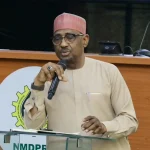Former President Goodluck Ebele Jonathan has sympathised with the people of Mali over the death of their former President, Amadou Toumani Touré.
Touré, who led the Sahel nation for 10 years before being ousted in a coup, died in Turkey at the age of 72 on Monday night.
Jonathan who has been an ECOWAS mediator to Mali over the ongoing political crisis that preceded the ousting of Mali’s President Ibrahim Boubacar Keïta by the military took to his official Twitter account to pen his condolence message.
“I condole with the Govt & people of the Republic of Mali over the passing on of former President Amadou Toumani Touré.
“He was a Malian statesman who made significant contributions to governance by working assiduously for the development of his country and the sub-region.
“The late former President will be greatly missed across the continent because of his commitment to peaceful diplomacy, democratic reforms, and socio-political stability,” GEJ tweeted.
I condole with the Govt & people of the Republic of Mali over the passing on of former President Amadou Toumani Touré.
He was a Malian statesman who made significant contributions to governance by working assiduously for the development of his country and the sub-region. pic.twitter.com/J6f40lwLqk— Goodluck E. Jonathan (@GEJonathan) November 11, 2020
Widely known by his initials ATT, Touré led an army coup in 1991 against Moussa Traoré after violent anti-government protests. He organised democratic elections the following year and handed over power to a civilian president, earning him the nickname of “Soldier of Democracy”.
Touré returned to the presidency in 2002, winning election with 65% of the vote, and was re-elected to a final five-year term in 2007. Touré was planning to step down when his second term expired in 2012.
During his presidency, Mali won international praise as a regional model of democracy for its regular elections, relatively free press and institutional reforms.
But his authority was weakened by high-level corruption, armed opposition in the desert north and a perception among some Malians that elections were not as free and fair as international observers suggested.
That ultimately led to the March 2012 coup by mid-ranking officers, followed by the fall of northern Mali to jihadist militants later that year. (France24/Reuters)











